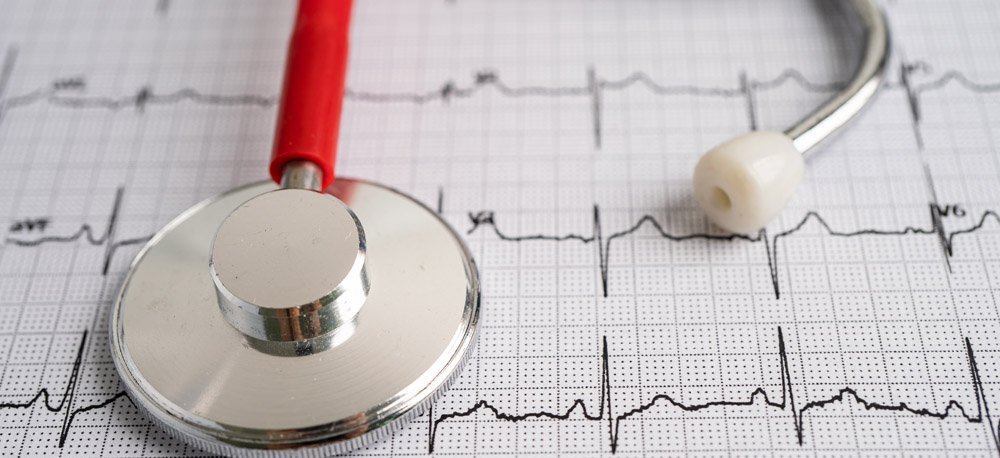-
May 26, 2022
-
0


Dealing with Hypertrophic Cardiomyopathy
Hypertrophic cardiomyopathy (HCM) is a genetic condition that causes thickening of the heart muscle (myocardium) and consequently impairs heart function. This muscular thickening most commonly occurs at the septum, the wall separating the lower left and right chambers of the heart (ventricles).
The thickened septum can create problems in two ways:
- The thickened walls can become stiff, reducing the amount of blood that the ventricle can hold and pump out of the heart with every heartbeat. This is known as nonobstructive hypertrophic cardiomyopathy.
- The thickened septum can create a narrowing that can reduce or block blood flow from the left ventricle to the aorta. This can cause the ventricles to pump much harder to overcome the narrowing or blockage. This is known as obstructive hypertrophic cardiomyopathy.
Symptoms
Some people do not show any symptoms of HCM until diagnosed or until they feel its effects after exercise or exertion. Out of these, the majority have obstructive hypertrophic cardiomyopathy, and the rest havenonobstructive hypertrophic cardiomyopathy.
Signs and symptoms of hypertrophic cardiomyopathy include:
- Shortness of breath, particularly during exercise/ exertion.
- Chest pain, particularly during exercise/ exertion.
- Abnormal heartbeats or palpitations (heartbeats that you can feel).
- Dizziness or light-headedness, particularly during exercise/ exertion.
- Fatigue
Risks and complications
Hypertrophic cardiomyopathy is the most common kind of genetic heart disease and is largely passed down the generations. Having a parent who suffers from HCM increases your chances of having inherited the condition by 50%. Parents, siblings, and children of people with diagnosed hypertrophic cardiomyopathy should be screened at the earliest.
Unless the heart is put under stress, patients of hypertrophic cardiomyopathy don’t have major health issues to worry about. However, complications listed below can occur:
- Atrial fibrillation: This can affect the heart’s electrical system and cause irregular heartbeats. It can also increase the chances of blood clots and stroke.
- Blocked flow of blood
- Problems with the mitral valve: This can cause blood being pumped out of the heart to leak back in, worsening symptoms.
- Dilated cardiomyopathy: The pumping ability of the heart becomes weaker.
- Heart failure: The ability of the heart to perform its function is compromised and worsens over time.
- Sudden cardiac arrest
Diagnosis and tests
Since HCM is an inherited disease, your doctor will perform several investigations to diagnose the condition correctly. These include:
- Family and medical history: Your doctor will check and ask questions about your family history to spot patterns of cardiac events such as cardiac arrests, family history of HCM, and heart failure.
- Physical examination to check and listen for problems with blood flow.
- Echocardiogram: This test is most commonly used to diagnose HCM and find signs of muscle thickening. This may be done along a treadmill test to check how well your heart is pumping blood in the form of an exercise stress test.
- Electrocardiogram: This test is conducted with electrodes/ sensors placed on your chest to check for abnormal heart rhythms and signs of muscular thickening in the heart.
- Cardiac MRI
Treatment
The primary focus of HCM treatment is to reduce the risk of sudden cardiac arrest and to relieve symptoms of the condition.
- Medication
- Beta-blockers to reduce blood pressure.
- Heart rhythm drugs to reduce irregular heartbeats.
- Blood thinners to prevent blood clots.
- Calcium channel blockers to reduce strong contractions in the heart and arteries.
- Surgical procedures
- Septal myectomy: The open-heart surgery is performed to remove the thickened and overgrown septum separating the two heart chambers.
- Septal ablation: Alcohol is injected with a catheter to kill the overgrown heart tissue and reduce muscle thickening.
- Implantable cardioverter-defibrillator (ICD): The ICD is a small device that is implanted in your chest to continuously monitor the heartbeat. In case an abnormal heart rhythm occurs, calibrated electric shocks are provided to the heart to restore regular heart rhythm and prevent sudden cardiac arrest.
Medication helps reduce the strain on your heart to pump blood and how strongly the heart muscle must squeeze to perform its function. These include:
Several surgical interventions are available to treat hypertrophic cardiomyopathy and its symptoms. They include:
Lifestyle changes to manage hypertrophic cardiomyopathy
Your doctor may suggest certain lifestyle changes or guidelines to reduce the risk of complications of HCM and manage its symptoms. These include:
- Exercise as recommended and with caution (avoid high-intensity sports)
- Eat a heart-friendly and balanced diet
- Maintain healthy body weight.
- Control diabetes
- Limit your alcohol consumption
- Stop or don’t start smoking
- Monitor your blood pressure regularly
- Manage stress whenever possible
Overall, most people with hypertrophic cardiomyopathy (HCM) live long and normal lives without serious complications or disruptions to their regular lifestyles. However, people with serious symptoms and who are at risk of heart complications such as sudden cardiac arrest and heart failure must manage the condition carefully and a treatment plan must be made by their cardiologists. It is very important that your health care providers identify any risks in time and provide preventive treatment. If you are worried about the risks of HCM, have developed symptoms, or have been diagnosed recently, reach out to the best cardiologists in Bangalore at the Sagar Heart and Vascular Institute to improve your quality of life and take control of your heart health.
Contact
JAYANAGAR
BANASHANKARI






